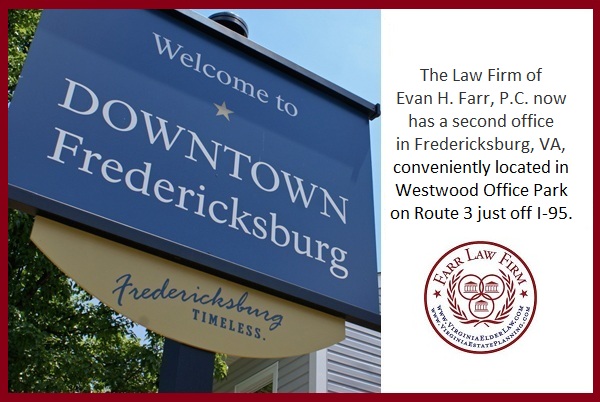Estate Planning During Divorce
Published: Wed, 09/18/13
|
|
|
 | |
|
Evan Farr's Elder Law and Estate Planning News |
|
Estate Planning During Divorce
 Divorce can be a painful and overwhelming process. Once a couple decides to go their separate ways, there are important decisions that need to be made. These can include selling or refinancing the family home and/or relocating to a new one, custody issues if there are minor children, and/or college expenses for older children. Often overlooked, but just as important, are changes that need to be made to your estate planning documents.
Most people would agree that their ex-spouse would be the last person who they would want to inherit their assets or to make decisions for them when they become incapacitated or die. But that is exactly what can happen if estate planning documents are not updated after a divorce. While some states do have provisions designed to keep an ex-spouse from inheriting from you, they vary greatly from state to state and they do not apply to all of your assets nor to federally regulated assets such as 401(k) plans or other ERISA-regulated plans. Upon separation or divorce, the only way to ensure that your assets will go to the right people is to update your estate planning or start over.
These updates to your estate planning are essential after a divorce:
If you have minor children, you need to name a guardian for them in your Will. (Even if you have a Revocable Living Trust or a Living Trust Plus (TM), a simple Will is required to name a guardian and to direct any forgotten assets into your trust.) Upon the death of one parent, usually the surviving parent will become the sole guardian. But if your ex-spouse has also died, had his/her parental rights terminated, or becomes an unfit parent, the court would have to appoint a guardian. Your Will should specify a guardian for your children who you can trust. If you divorce before your health care directives take effect, it's often wise to eliminate confusion by starting over. Even if you named an alternate agent, it is recommended that you make a new document and name someone else as your agent, such as a parent, sibling, close friend or an adult child. In a handful of states, if your spouse is your agent and you divorce, your ex-spouse's authority is automatically terminated. In Virginia, however, if you have given your spouse a Power of Attorney, you should generally cancel it as soon as possible upon separation divorce. Until you do so, your spouse has control over your property and can sell it or even give it away. If you have children, naming a trust as the beneficiary and selecting your own trustee (which may be your parent or sibling) is often a wise idea. A trustee can be held liable if he/she misuses the trust assets. You can keep your ex-spouse from having access, and you can control when your children will inherit. Money that stays in the trust is protected from irresponsible spending, creditors, and even spouses. If you have recently gone through a divorce, you may feel like you have had enough of attorneys for a while. But, for the reasons stated in this article, it is essential to work with a Certified Elder Law Attorney, such as Evan H. Farr, to begin planning or update your estate planning documents now. To make an appointment for a no-cost consultation, please call the Fairfax and Fredericksburg Estate Planning Law Firm of Evan H. Farr, P.C. at 703-691-1888. |
| ||||||||
|
|
Unsubscribe to this Newsletter |









